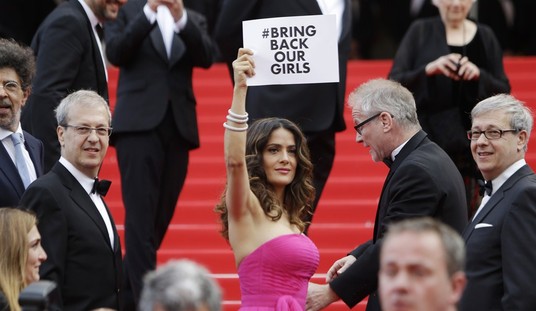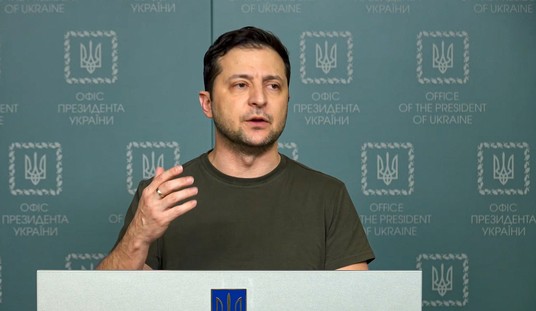Following troubling signals from the Vatican as well as remarks from Pope Francis himself over the months since his accession to office, a growing chorus of voices has risen registering concern regarding the Catholic Church’s position on social issues including the structure of the family, divorce, and sexuality.
Bringing things to a head was a midterm report released from last year’s Synod on the family in which more conciliatory language was used in relation to homosexuality, cohabiting couples, and allowing divorced and remarried couples to receive communion.
Language in the report was received in different ways according to the values of those doing the listening. In liberal circles, it was hailed as a sign that the Catholic Church was finally breaking down and accepting the new normal of the sexual revolution, while among the Catholic base, it was received with considerable dismay.
In fact, many received the language in the report as a potentially suicidal surrender to the forces of political correctness that have swept the world, infiltrating every institution, and thus beginning to wear away at the foundations of Western Civilization itself. It was read with considerable alarm by many who had comforted themselves with the idea that the Church, with its settled dogma and teachings of Jesus, would be immune to the movement’s secularist ideology. The wording of the report, however, seemed to indicate otherwise.
“The very disturbing midterm relatio, which I have openly said was not a relatio or report but a manifesto, served to wake up the Synod Fathers to an agenda that was at work which touches upon the truth about marriage,” warned Cardinal Raymond Burke, prefect of the Supreme Tribunal of the Apostolic Signatura, in an interview for the Wanderer.
Wasting little time following the release of the midterm report, Burke talked of pushback from more traditional elements in the Synod.
“In the period between the midterm report and the final relatio, (sub-committees) worked very diligently to try to repair the serious damage done by the midterm relatio,” said Burke, “and much progress was made.”
“We’re not giving in to the secular agenda,” Cardinal George Pell said in an interview for the Catholic News Service. “We’re not collapsing in a heap. We’ve got no intention of following those radical elements in all the Christian churches, according to the Catholic churches in one or two countries, and going out of business.”
Even with such assurances, the concerns of the faithful were hardly mollified with the news from Synod organizer Cardinal Lorenzo Baldisseri that Pope Francis had indeed read the midterm report before it was released to the public. That Pope Francis had read it indicated, at least, the pope’s agreement with its conciliatory message.
As a result, a resistance movement of sorts has arisen with individual groups and organizations mobilizing over the months since last October’s Synod to present a united front against the foot in the door — or the camel’s nose in the tent (pick your cliché) — that could end up some day resulting in wholesale acceptance of the new status quo.
Among such outfits is the Italian based organization Filiale Supplica, an umbrella group composed of pro-family groups and lay Catholic leaders that has gathered tens of thousands of signatures (including that of former U.S. presidential candidate Rick Santorum) for a petition addressed to the pope urging him to reaffirm “categorically the Catholic teaching that divorced and civilly remarried Catholics cannot receive holy Communion and that homosexual unions are contrary to divine and natural laws.”
Other groups that have voiced similar concerns include the Voice of the Family and the Confraternity of Catholic Clergy.
In addition to such grassroots efforts to influence the direction of the conversation, there have also been a number of insiders including Burke, such as prefect of the Congregation for the Doctrine of the Faith, Cardinal Gerhard Muller; prefect for Divine Worship, Cardinal Robert Sarah; and Cardinal George Pell, who have openly criticized any watering down of the Church’s teachings fearing a “domino effect” that would eventually lead to the often unrecognizably Christian doctrines of many mainline Protestant churches.
“The secret for all Catholic vitality is fidelity to the teachings of Christ and to the tradition of the church,” said Pell, a member of the Council of Cardinals that advises Pope Francis on church governance.
“The Church cannot change her teaching on the indissolubility of marriage and the grave sinfulness of sexual relations outside the matrimonial union and the grave sinfulness of homosexual acts,” said Burke. “The laity needs to nourish themselves with the teaching of the Church’s Magisterium on marriage, with the teaching that is contained in the Catechism of the Catholic Church. They must also give witness to it in their everyday dealings, not only with other Catholics but with people who are not of the Catholic Faith, to make it clear that the Church is not changing her teaching; indeed, that she cannot.”
On the other hand, Cardinal Walter Kasper, emeritus president of the Pontifical Council for the Promotion of Christian Unity, dismissed the concerns of conservatives as tantamount to believing that the foundation of the Church was built on sand and could collapse like a house of cards if any of its tenets were challenged.
“I think they fear a domino effect, if you change one point all would collapse,” surmised Kasper in an interview for America magazine. “That’s their fear. This is all linked to ideology, an ideological understanding of the Gospel that the Gospel is like a penal code.”
Fueling the fears of many, Kasper himself had been asked by the pope to speak before the College of Cardinals early in 2014 and to raise these very topics.
That speech exposed a clear divide among Church leaders on hot-button social issues: those who sought to make peace with the new moral relativism and those who believed any deviation from the teachings of Christ would inevitably lead down the road to error and irrelevance.
One doesn’t have to look far for examples of such a fate. Just look to the many Protestant churches, even those of fundamentalist or evangelical persuasions. Denial of the Eucharist, female ordination, same-sex marriages, divorce and remarriage — to name a few of the deviations from the original Catholic brand of Christianity — have forced many conscientious Christians to spend less and less time as members with any single congregation and instead to “church hop,” hoping to find that church that still adheres uncategorically to Jesus’ teachings.
Such churches are getting harder and harder to find. And as some believe, impossible to find, especially should the Catholic Church loosen its faithfulness to the depository of tradition and the teachings of Christ. If that happens, human beings would be cast upon a sea of uncertainty without assurance that what they believe is not only in fact true, but the manner in which God wants them to live their lives — lives that should be lived in preparation for spending eternity with Him.









Join the conversation as a VIP Member